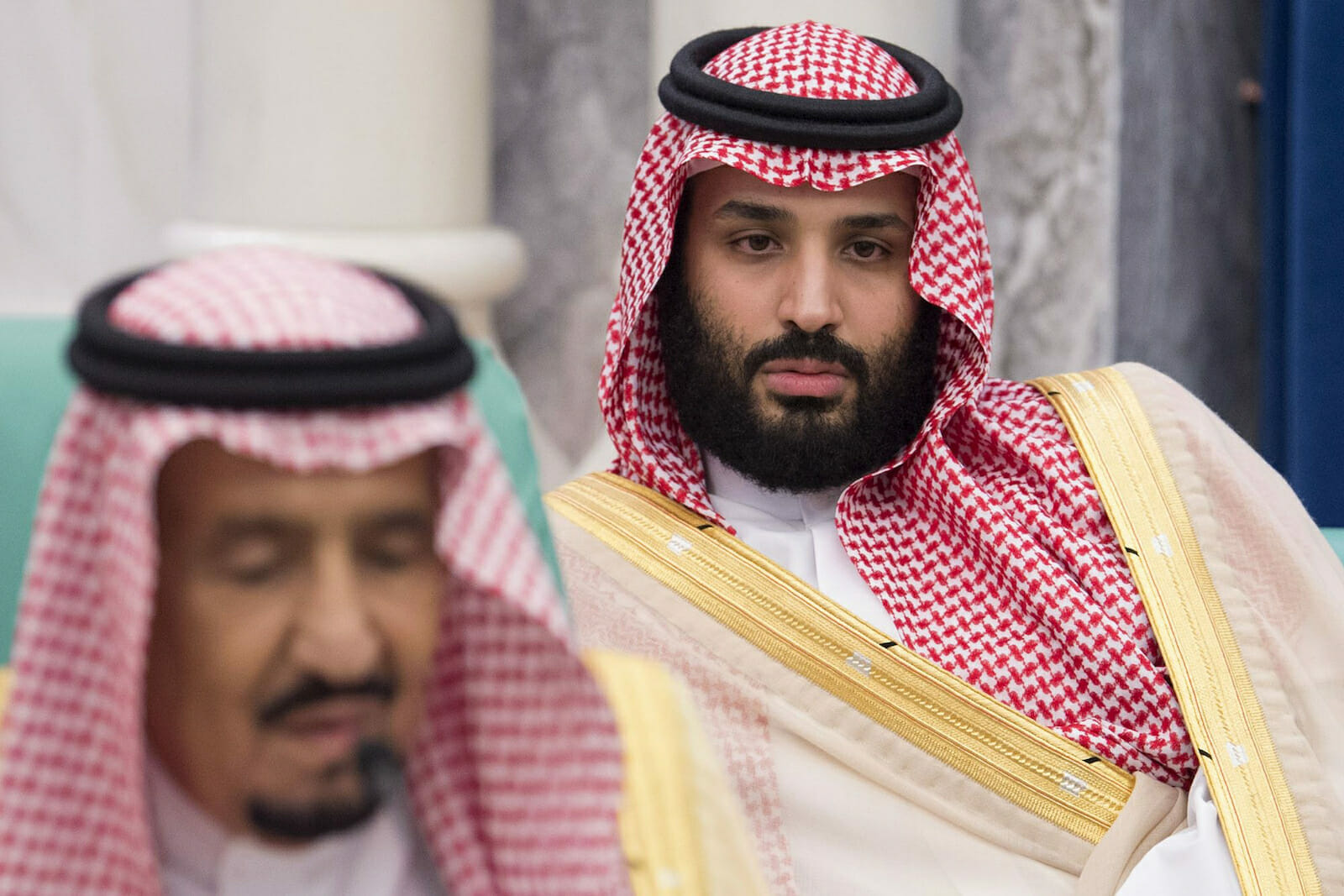
Five Key Strategic Questions Post-Khashoggi
As the dust appears to be settling over the death of Jamal Khashoggi, some vital strategic questions remain.
If bin Salman does survive, what does the future hold for US-Saudi relations? Bruce Riedel, former CIA analyst, told it well when he wrote that, “the crown prince is counting on the Trump administration to stick with him given the blank check it has provided for Saudi Arabia in the last two years…So far he has been right.”
With King Salman and Crown Prince Mohammed bin Salman’s drastic changes to the systems of loyalty and decision-making, their positions look secure. So, what is next for the US and Saudi Arabia?
In spite of 1) the clear eruption amongst US Senators and the American press, 2) the new-found sway of the Democrats in the House of Representatives, and 3) the CIA’s conclusion that the Crown Prince himself ordered the killing, a realistic vision of things to come is one where little has changed. The US will limit its actions to reigning in more direct involvement in the Yemeni civil war and upholding sanctions against individual Saudi officials. Ultimately though, there will be no halted arms sales and bin Salman will not be targeted.
Simply, the depth of the military-strategic-economic relationship between the US and Saudi Arabia runs too deep. This includes the web of Saudi influence in Washington, the role that Saudi Arabia plays for the US in regulating oil production, as well as the security cooperation relationship that Riyadh and Washington continue to maintain. Finally, the $110 billion arms deal that President Trump has heralded as an economic and political success (albeit only actually generating $14.5 billion at the time of writing), serves as a useful tool to silence critics.
This approach of upholding the status quo enables a ‘best of both worlds’ scenario of meeting the demands of the critics of Saudi Arabia while enabling another of Trump’s illusions. Namely, the ambiguous ‘strategic vision’ of confronting Iran, and of protecting American jobs domestically through maintaining arms sales.
Who is winning the Saudi-Turkish struggle for leadership? Both Turkey and Saudi Arabia are laying rival claims to leadership of the Sunni Muslim world and the future of Islam. Erdoğan has not even masked these ambitions, with a pursuit of the moral high-ground in the Khashoggi affair offering political benefits in the PR battle of self-branding for the leadership of Sunni Islam.
Importantly neither side seeks direct conflict; with too much at stake in proxies and PR over their fellow Muslims to risk it all in a real confrontation.
Currently, Turkey supports the blockaded Qatar, with Doha investing billions in a faltering Turkish economy, while Erdoğan received a personal ‘gift’ of a private jet from the Qatari emir. Turkey also plays host to numerous Muslim Brotherhood figures and other political Islamists whose republican Islamism is in the direct firing line of Mohammed bin Salman and the UAE’s Sheikh Khalifa.
Erdoğan – recently described by the front-runner for Malaysian PM as the ‘the voice of conscience for the Muslim world’ – has played his cards well in staking a claim for leadership. His foreign policy has involved promoting nominally ‘Muslim’ causes, such as the plight of the Rohingya and the Palestinians, as well as hosting republican Islamists. Here, Erdoğan’s ‘hearts and minds’ policy is clearly gaining an audience. The holistic approach to Muslim groups and ideologies, including criticizing Muslim sectarianism, looks to be an emergent success in a quest for leadership.
Compare this with Riyadh and Abu Dhabi’s fierce rejection of Iran and political Islamists, as well as Wahabbism’s ongoing ideological and practical defeats. What works in Saudi Arabia’s favour though is the religious legitimacy of hosting the Mecca and Medina mosques, as well as Riyadh’s international development aid to Muslim countries. For example, while there were protests in Tunis against Mohammed bin Salman’s visit, Riyadh maintains a strong alliance with the government through aid to a sluggish Tunisian economy. Certainly, though this does not totally rectify Saudi Arabia’s numerous missteps in the eyes of the Muslim world.
Erdoğan is winning the PR battle of influence but has not yet won the war. With Turkey generally avoiding the ostracism of Iran and not engaging in US sanctions, this Iran-Turkey relationship will be one to watch closely.
In which direction are the Gulf countries heading? The Gulf region is seeing an increased atomization of Gulf relations, reflecting a pursuit of self-interest over any mystical ‘GCC collective interest.’
Kuwait particularly has come to represent this, while retaining one foot in the Saudi camp.
Under Kuwait’s diversification agenda, it has awarded Turkey valuable construction contracts and Ankara is vying for more. The two also signed a work plan for joint defensive cooperation at the height of the Khashoggi affair, which came immediately after Saudi Arabia had failed to successfully address Gulf tensions during a repeatedly delayed visit to Kuwait on September 30th. Kuwait, like most GCC states, seeks influence away from the Saudi sphere.
In spite of concerns between Saudi Arabia and the UAE over the role given to the Muslim Brotherhood-affiliated al-Islah party in Yemen, the UAE will coalesce behind Saudi Arabia. The UAE continues to build its sphere of influence outside of Saudi direct interests while reaping the benefits that this alliance of ‘convenience’ has traditionally offered.
Isolated Qatar has gained politically in the Khashoggi affair. Al Jazeera – Doha’s broadcaster – has covered the subject continuously and has, therefore, put Qatar in the driver’s seat of debates around Riyadh’s conduct. The fact that Turkey chose to leak information to Al Jazeera was not a coincidence, with Turkey and Qatar both gaining mutually from the drip-drip of salacious and incriminating information.
Another factor for Gulf atomization is OPEC. Saudi Arabia’s increased willingness to solidify energy ties outside of OPEC, including with Russia, combined with Qatar’s recent exit, spells bad news for the organisation.
Qatar’s exit from OPEC is an emboldened attempt to assert itself in the international fuel markets, where consumption has increasingly moved towards natural gas, of which Qatar is the world leader in production. Meanwhile, Riyadh remains dogged with difficult questions over production quotas and its modernisation agenda, in light of an ever-volatile oil market.
A fracturing of OPEC will further atomize relations between the GCC states.
What does this mean for Israel and the ‘deal of the century’? The elusive ‘deal of the century’ – relying on Kushner’s competency, bin Salman’s legitimacy and Netanyahu’s stability – appears less and less feasible as time goes by.
The significance of Saudi Arabia lies in a complex combination of security guarantor against Iran and upholder of Trump’s ‘deal of the century’ peace plan. All of which would serve to legitimise the shaky ground upon which Netanyahu sits.
Regarding Iran, both Saudi Arabia and Israel see the country as a regional threat. Iran’s success is viewed in zero-sum terms as a challenge to a beneficial status quo in the region for Saudi Arabia and Israel.
Positive links between Saudi Arabia and Israel have been emerging for years. With clear statements of intent vis-à-vis normalisation with Oman and sustained talks with other GCC members, this diplomatic effort with Arab states would serve Israel well. Shoring up major Arab allies would help in terms of security interests as well as economics, with a recent study estimating that Israeli-GCC trade sits at around $1 billion and growing. Whether this rapprochement will be as willingly taken to by the subjects of the Gulf monarchies is entirely another question.
In terms of the ‘deal of the century,’ MbS looked to be a key potential figure to influence Palestinian decision-making in accepting the terms proposed by Kushner and Trump for a peace plan. While Kushner is looking to table a deal in the coming months, damages to MbS’ credibility mark a severe blow to his powers of leverage over the Palestinian leadership. The deal will be shelved not long after reaching the table.
It’s clear why Eran Lerman, asserted that “it is certainly not in our interests to see the status of the Saudi government diminished in Washington.” As such nobody should be too surprised as to why Netanyahu has given MbS the benefit of the doubt.
Can a weakened Iran capitalise on Saudi Arabia’s position? There are certainly tough times ahead for Iran, with a widening budget deficit looking to be hit harder by sanctions, and reports that sanctions are constraining Iran’s military spending.
But it is not all bad news.
Iran has benefitted from fairly favourable results in the Iraqi elections, with a prominent role for Shi’a within the country, as well as emerging plans for deepening economic ties between Iran and Iraq. In fact, US sanctions on Iran look to be catalysing this process. Further, with Assad due to retain power in Syria, the relationship with Iran will duly also remain.
Providing that Tehran can weather the initial storm of the US’ new wave of sanctions, it can take some confidence in the self-immolation of the strategies developed by the Israel-Saudi-US troika. Especially said strategies that have been forged with the containment and isolation of Iran and Iranian influence as its explicit objective.
Rouhani will be relishing MbS’ lowered international standing through the lens of power politics and influence, with the balance of power swinging in Rouhani’s favour. This will benefit Iran’s standing in some key battlegrounds, notably Iraq, in which the pro-Iran camp wields influence, as well as in Yemen. Similarly, the relationship between Iran and Syria and Lebanon will likely benefit from the toxicity of the Saudi brand, where Iran is already pushing forward with plans to establish a railway link to Syria through Iraq. In this sense, Iran certainly has the opportunity to capitalise on Saudi Arabia’s missteps.
With talk that the Gulf States are looking at accepting the status of Assad as the leader of Syria, it will be worth watching what Iran’s simultaneous role would be in reconstructing Syria.
Finally…
Ultimately, the botched killing of Jamal Khashoggi has damaged the interests of the anti-Iran alliances and played nicely into the hands of Erdoğan.
The nature of President Trump’s actual vision and intentions towards Iran remains foggy, but the contempt remains. What is clear is that if Iran, Hezbollah, and Turkey are the poison, then Trump considers Netanyahu’s Israel and MbS’ Saudi Arabia to be the antidote. Or at least the best options to catalyse a confrontation.
If MbS wants to regain some lost credibility and present himself as a worthier leader within the Muslim world – and against the challenges of Turkey – he should begin with reigning in the costly war in Yemen and re-establishing beneficial relations with Qatar. Both of which do not seem likely just yet.

